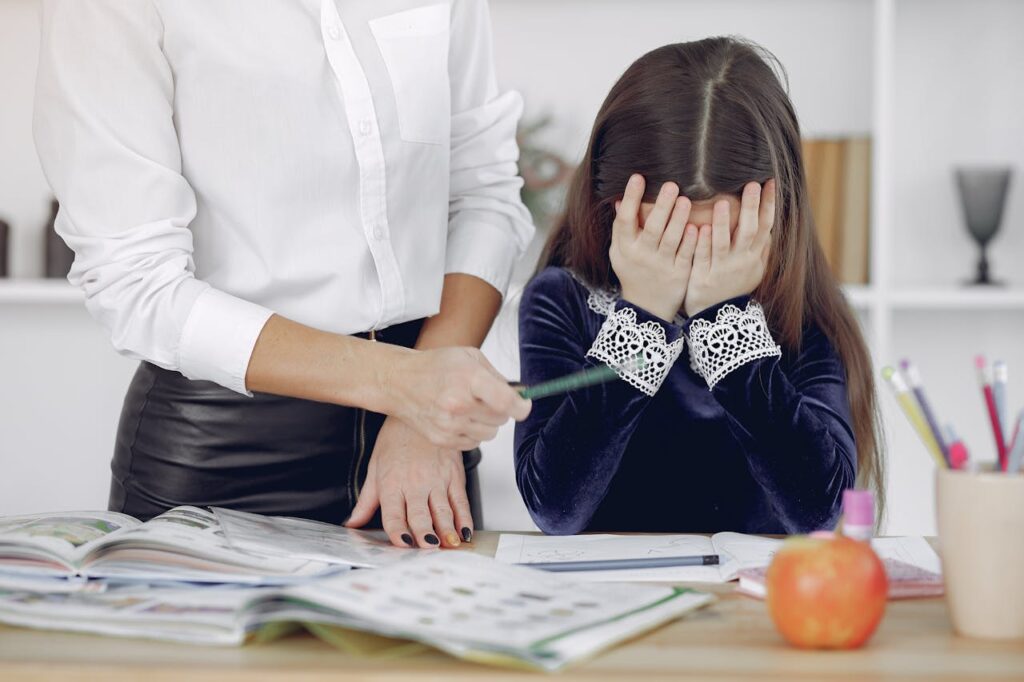Overparenting, or being a “helicopter parent,” occurs when parents become too involved in every aspect of their child’s life. Although the intention is to protect and guide, it can prevent kids from developing the independence and confidence they need. In this post, we’ll explore common overparenting mistakes. We’ll also share tips on how to find a better balance between caring and giving your child space to grow.
Why Some Parents Make Overparenting Mistakes
Overparenting often comes from a parent’s desire to protect their child from challenges. Many parents believe that by stepping in and handling things for their kids, they are helping them succeed and avoid failure.
While this comes from a good place, it can stop children from learning important skills like resilience and problem-solving. Parents may worry about their kids struggling and feel pressure to be super involved, which can lead to overparenting mistakes.
Sometimes, parents even try to push their own dreams or expectations onto their children, controlling their paths and decisions. This can make it harder for kids to develop independence and the ability to make choices for themselves.
Even though these actions come from love, overparenting can hold children back. It can leave them unprepared to face challenges on their own as they grow older.
Growing Up with Overparenting Parents
I experienced overparenting firsthand growing up in a traditional Korean household. My parents were deeply involved in every part of our lives. From a young age, they told us exactly what we should become, who we should marry, and how we should live.
They forbade us from dating, arranged marriages for three of my brothers, and even decided what careers we should pursue. At the time, I believed they were just protecting us and that they knew what was best.
Looking back, I realize that this was a form of overparenting. My parents believed it was their duty as parents to guide us in every aspect of our lives. They didn’t give us the freedom to make our own decisions. Instead of guiding us in a supportive way, they set strict rules and expectations, leaving little room for independence.
As an adult, I now see how this overparenting impacted me. While my parents did their best to raise us, their actions prevented us from learning important life skills. I still love and respect them, but I now understand how overparenting mistakes can limit a child’s ability to grow and become their own person.
5 Common Overparenting Mistakes
Even with the best intentions, here are some common overparenting mistakes many parents make:

1. Making Decisions for Their Kids
Many parents try to control every decision their child makes, from what to wear to who they should be friends with. While it’s important to offer guidance, making all the choices for them can stop kids from learning how to think for themselves.
For example, when my kids were teenagers, I made the overparenting mistake of telling them exactly how to eat healthy. I thought it was my duty as a parent to make sure they never touched junk food. But instead of following my “wise” advice, they resisted like I was trying to force-feed them kale for breakfast.
After a few years, I realized that I needed to give them more freedom to make their own choices, and maybe, just maybe, let them discover the joys of broccoli on their own.
2. Shielding Them from Failure
Some parents try to protect their children from failure, believing it will harm them. While it’s natural to want to shield them from hurt, failure is actually an important part of growing up. Overparenting mistakes often happen when parents prevent their children from experiencing setbacks, thinking they are helping.
However, when children are not allowed to fail, they miss out on developing resilience and problem-solving skills. Letting kids fail and learn from their mistakes is crucial for their growth and helps them become more capable and confident individuals.
3. Over-Controlling Their Schedules
Parents who overparent often micromanage their child’s daily routine, from schoolwork to activities. While structure is important, giving children too little freedom to choose their own interests can be stifling. For example, some parents track their kids’ every move, checking if homework is done and ensuring they’re at the right extracurriculars.
While it’s meant to keep them on track, it takes away the opportunity for kids to manage their time and explore their passions. Allowing kids to make decisions about how they spend their time helps them develop responsibility and self-discipline.
4. Being Overly Critical
When parents constantly point out flaws or mistakes, it can hurt a child’s self-esteem. Overparenting often leads to overly critical behavior, with parents thinking it will help their child improve. However, this overparenting mistake can cause anxiety and a fear of failure.
Instead of focusing on criticism, positive reinforcement is much more effective. Encouragement helps children build a healthy sense of self-worth and confidence.
5. Not Allowing Space for Independence
Parents who overparent may feel the need to supervise their child every step of the way, even as they grow older. This can prevent kids from learning how to handle things on their own. It’s crucial to respect boundaries and allow children age-appropriate independence to build their confidence and problem-solving abilities.
For example, even at age 58, my nearly 90-year-old parents still try to tell me how to live my life. The other day, my mom suggested I shouldn’t travel so much and should focus more on “settling down.” I couldn’t help but laugh and had to remind them how old I was.
I love them dearly, but this is a classic example of overparenting mistakes. It’s a reminder that, no matter the age, everyone needs some space to make their own choices!
The Impact of Overparenting Mistakes

Overparenting mistakes often come from a place of love and care, but they can end up doing more harm than good. By being too involved, parents might unintentionally hold their children back from learning important life skills.
It’s important to find the right balance between offering guidance and allowing kids the freedom to grow and make their own decisions.
Remember, every child needs room to develop their own confidence, independence, and problem-solving abilities.














